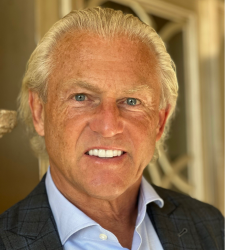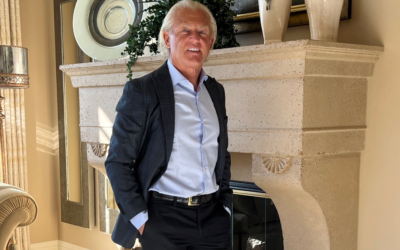
Veteran business leader Chris Lischewski, celebrated for his unique style of transformative leadership, recently shared the qualities of a true turnaround leader. With industries struggling globally in an age of disruption and intense geo-political turmoil, few leaders possess the skill and vision to turn challenges into opportunities for enduring success. Lischewski emphasizes the importance of strategic insight, operational discipline, and an unshakeable focus on results.
Through Lischewski’s illustrious career spanning several decades in finance, business development and executive leadership, he’s led multiple companies through significant challenges. From reviving StarKist Seafood’s global operations to steering Bumble Bee Seafoods from bankruptcy to a billion-dollar enterprise, his journey offers valuable lessons for leaders tasked with navigating transformation.
Adaptability and Vision: The Cornerstones of Turnaround Leadership
Lischewski says that first and foremost, turnaround leaders must have both vision and adaptability. “In challenging times, especially when businesses are underperforming, leaders need to take stock of the situation quickly, identify the underlying causes, and formulate a clear strategy for recovery,” he said. However, he warns against a reactive approach. “But it’s not just about reacting to challenges. You must also look ahead to new opportunities and align your team around a shared vision for the future.”
Lischewski showcased these very traits during his time at StarKist, where he carried out a comprehensive restructuring plan. By implementing an international procurement strategy and building factories in Ecuador, Seychelles, and Ghana, he expanded the company’s global reach while significantly improving profitability.
The Need for Operational Excellence and Financial Discipline
According to McKinsey & Company, around 70% of change initiatives fail to achieve their intended outcomes due to lack of leadership. In recent years, large companies have faced significant financial challenges, highlighting the need of the hour. In 2024, 19% of UK-listed companies issued profit warnings, marking the third-highest proportion this century.
Lischewski emphasizes the importance of operational and financial discipline to stablize struggling companies. “Efficient operations and cost management are critical for stabilizing an underperforming organization,” Lischewski explained. “As CEO of Bumble Bee foods, I had positioned our organization as the industry’s low-cost operator, which gave us the financial flexibility to invest in innovation and growth.”
Under Lischewski’s leadership, Bumble Bee’s annual sales grew from $400 million to $1 billion, showcasing his ability to balance immediate operational needs with long-term strategic objectives.
Building Great Teams and a Culture of Accountability
Another characteristic of Lischewski’s leadership style is his emphasis on building strong teams and a culture of accountability. “No leader can drive a turnaround alone. Success comes from assembling a talented team, empowering them to take ownership, and holding everyone accountable for delivering results,” he said.
He demonstrated this during his time at Heinz European Seafood, consolidating the company’s disparate operations into a unified business unit. By aligning teams across Europe and establishing clear goals, he positioned Heinz as the leading brand of shelf-stable seafood in the region.
Decision Making and Resilience in Crisis
Reflecting on his experiences, Lischewski underlined the importance of resilience and decisive action. “Turnaround leaders face intense pressure, and decisions often need to be made quickly. It’s essential to stay composed, focus on the facts, and act decisively to address critical issues,” he noted.
His resilience was particularly evident during his early years at StarKist, where he helped reverse years of underperformance and set the company on a path to sustained success. By vertically integrating fishing operations and expanding the company’s fleet, he ensured a steady supply chain and improved operational efficiency.
Aligning Purpose
For Lischewski, leadership is ultimately about purpose. “Turnaround leaders must inspire their teams by connecting the organization’s mission to a broader purpose,” he said. “Whether it’s delivering value to customers, supporting communities, or advancing sustainability, a clear purpose drives engagement and fuels long-term success.”
Lessons for Aspiring Turnaround Leaders
Chris Lischewski’s career offers key lessons for leaders aiming to drive transformation:
- Adapt quickly: Assess challenges thoroughly and craft a clear recovery strategy.
- Balance short-term fixes with long-term goals: Financial discipline and operational efficiency are vital for stability, but sustainable growth requires visionary thinking.
- Empower your team: Build a talented team, set clear expectations, and foster accountability.
- Stay resilient: Face challenges head-on with composure and decisiveness.
- Lead with purpose: Align organizational efforts with a mission that inspires and motivates.
With industries struggling through recession, rapid technological changes, and a highly disruptive business landscape, the need for resilient and turnaround leadership has never been more pronounced. Chris Lischewski’s advice gleaned from his own inspirational journey is a testament to what is possible with the right vision and mindset.



